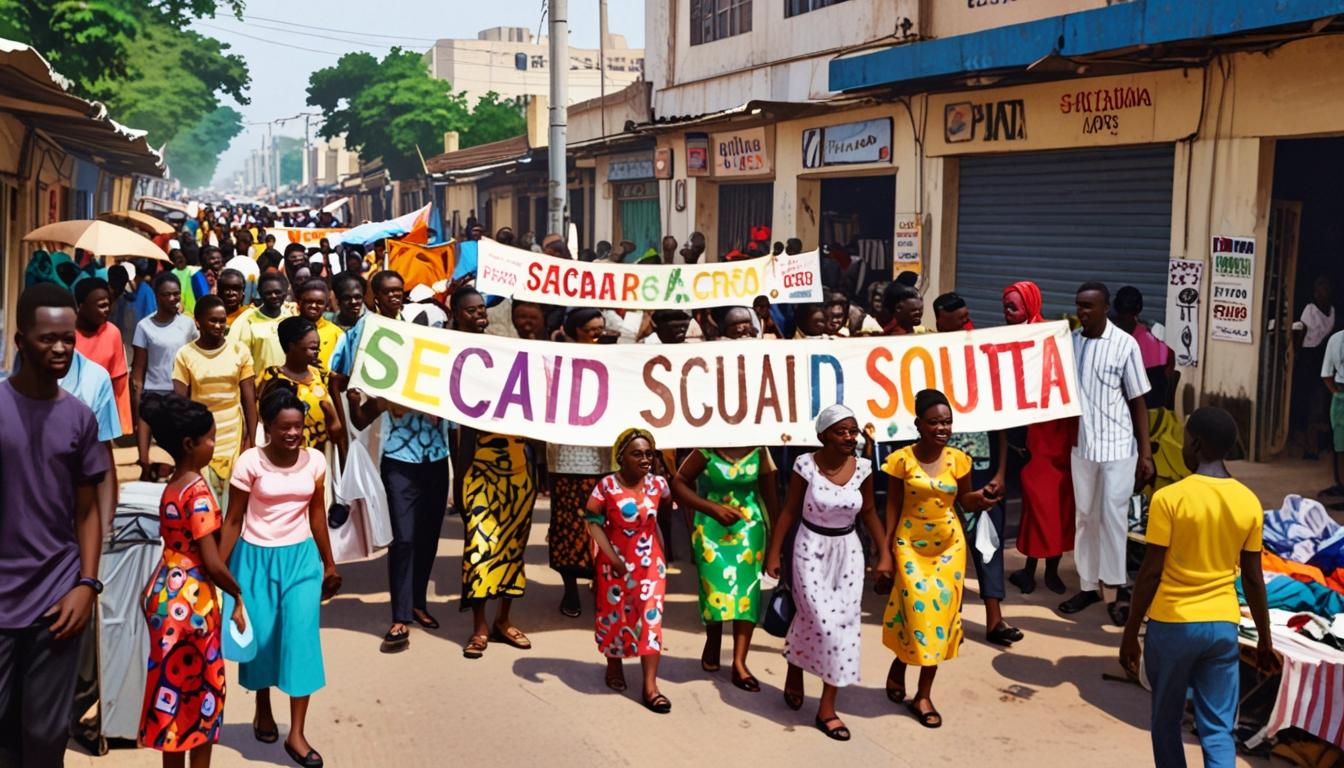The Ghana Used Clothing Dealers Association organized a demonstration to defend the secondhand clothing trade against alleged false narratives from The Or Foundation, emphasizing its economic and environmental significance.
On April 11, 2023, the Ghana Used Clothing Dealers Association (GUCDA) organized a protest aimed at defending the interests of the secondhand clothing trade in Ghana. This peaceful demonstration, held in various locations, sought to address what many traders described as misleading information and narratives propagated by non-governmental groups, particularly The Or Foundation. The GUCDA estimates that the secondhand clothing sector directly and indirectly supports approximately 2.5 million Ghanaians, emphasizing its vital role in the nation’s economy.
The protest’s underlying motivation was to highlight the financial and environmental advantages associated with secondhand clothing, while criticizing The Or Foundation for its alleged campaign against local merchants in Kantamanto, a well-known market in Accra. GUCDA members expressed concern that the foundation’s actions could jeopardize their livelihoods. The foundation has reportedly claimed that 40-50% of imported secondhand clothing becomes waste—statistics that the GUCDA disputes, arguing that such assertions are based on limited research and do not represent the overall picture of the industry.
GUCDA Chairman Jeffren Abrokwah articulated the frustrations of traders, stating, “We will not remain silent while our work is discredited,” as quoted in Just Style. He continued by emphasizing the importance of the secondhand market in reducing waste by giving clothing a new life, and criticized The Or Foundation, accusing it of spreading false narratives that tarnish Ghana’s image. Abrokwah pointed out the contradiction inherent in an organization promoting sustainability while allegedly undermining a sector that is key to environmental recycling and economic stability in the country.
In solidarity with GUCDA, the Ghana Union of Traders Association (GUTA) has expressed intentions to organize a nationwide demonstration to advocate for secondhand clothing dealers, asserting that these merchants are being unfairly targeted and their trade undermined. The leadership of the Kantamanto market has countered the claims made by GUCDA, labeling these assertions as deceptive and emphasizing their commitment to transparency, sustainability, and collaboration with The Or Foundation.
The context of this industrial action follows a devastating fire at Kantamanto market in January 2025, which led to significant losses in the area. After the incident, The Or Foundation had pledged $1 million to support immediate relief efforts, creating further tension in the dialogue surrounding the secondhand trade and its impacts.
In the broader context, the secondhand clothing sector is gaining recognition as a significant economic contributor across various African nations. A recent report from Consulting For Africa and Abalon Capital Limitada indicated that similar sectors in Mozambique sustain over 200,000 jobs in both formal and informal markets, underscoring the economic importance of secondhand trading on the continent.
The discourse surrounding Ghana’s secondhand clothing trade continues to evolve, reflecting broader issues of waste management, environmental sustainability, and economic support for local communities amidst growing global attention to consumption practices.
Source: Noah Wire Services



